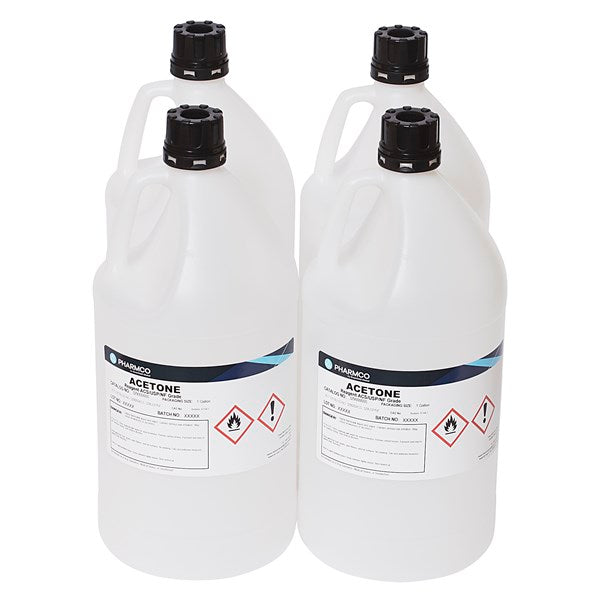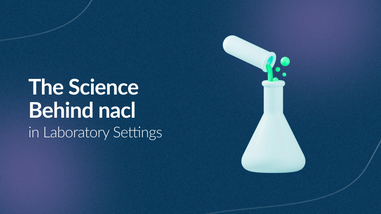- No products in the cart.
In the world of chemicals and solvents, few substances are as versatile and essential as acetone. With a distinctive aroma and a wide range of applications, acetone plays a significant role in various industries, from manufacturing and healthcare to cosmetics and household use. In this blog, we'll delve into the many facets of acetone, exploring its properties, uses, and significance in our everyday lives.
Chemical Composition and Properties
Acetone is a ketone with the chemical formula (CH3)2CO. It is the simplest and smallest ketone, with a molecular weight of 58.08 g/mol. Acetone is a polar aprotic solvent, meaning it has a dipole moment but does not donate protons. This property allows it to dissolve a wide range of substances, including organic compounds, oils, and resins.
Acetone has several important chemical properties that contribute to its versatility:
-
High solubility: Acetone is soluble in water and many organic solvents, making it a valuable intermediate in various chemical reactions.
-
Low boiling point: Acetone has a relatively low boiling point of 56.2°C, allowing it to evaporate easily, which is useful in applications like nail polish removal and paint thinning.
-
Flammable: Acetone is a flammable liquid with a flash point of -20°C, requiring careful handling and storage.
-
Miscibility with oils and resins: Acetone's ability to dissolve oils and resins makes it useful in various applications, including paint thinning, cleaning, and adhesive formulation.
CAS Number
Acetone's CAS number is 67-64-1, a unique identifier assigned by the Chemical Abstracts Service (CAS) to identify chemical substances. This number is widely used in scientific literature, chemical databases, and regulatory documents.
Production of Acetone
Acetone is primarily produced through the cumene process, which involves the oxidation of cumene (isopropylbenzene) to cumene hydroperoxide. The cumene hydroperoxide is then cleaved to produce acetone and phenol.

Uses of Acetone
Acetone's versatility stems from its ability to dissolve a wide range of substances. Here are some of its common uses:
-
Nail Polish Remover: Acetone is the primary ingredient in most nail polish removers. It effectively dissolves nail polish, allowing for easy removal.
-
Paint Thinner: Acetone is a common paint thinner, used to reduce the viscosity of paints and lacquers, making them easier to apply and spread evenly.
-
Cleaning Agent: Acetone's ability to dissolve oils, greases, and resins makes it an effective cleaning agent. It is commonly used to clean laboratory equipment, tools, and other surfaces.
-
Plastic Manufacturing: Acetone is used in the production of various plastics, including polymethyl methacrylate (PMMA) and polycarbonate. It acts as a solvent for monomers and helps in the polymerization process.
-
Pharmaceutical Manufacturing: Acetone is used in the production of various pharmaceuticals, including antibiotics and vitamins. It serves as a solvent for extracting and purifying pharmaceutical compounds.
-
Adhesives and Coatings: Acetone is a component of some adhesives and coatings, providing solvent properties and contributing to their adhesion and curing processes.
-
Laboratory Applications: Acetone is a common solvent used in various laboratory experiments, including organic synthesis, chromatography, and analytical chemistry.
-
Dehydrating Agent: Acetone can be used as a dehydrating agent, removing water from substances. It is particularly useful in drying organic compounds.
Safety Precautions
Acetone is a flammable and hazardous substance. It is important to handle it with care and follow proper safety precautions:
-
Work in a well-ventilated area: Acetone vapors are flammable and can cause respiratory irritation. Ensure adequate ventilation when working with acetone.
-
Wear protective equipment: Use gloves, goggles, and a lab coat to protect your skin and eyes from exposure to acetone.
-
Avoid open flames and sparks: Acetone is highly flammable and should be kept away from heat sources and open flames.
-
Store acetone properly: Store acetone in a tightly sealed container, away from heat, light, and incompatible chemicals.
-
Dispose of acetone responsibly: Do not pour acetone down the drain. Follow local regulations for proper disposal of acetone waste.
Environmental Impact
Acetone, like many organic solvents, can have environmental implications if not managed responsibly. It should be disposed of properly and not released into the environment. Recycling and reusing acetone is one approach to reducing its environmental impact.
Conclusion
Acetone, the versatile solvent, is a chemical that impacts various aspects of our lives, from industry and research to health and household use. Its ability to dissolve a wide range of substances, coupled with its unique physical properties, makes it an invaluable tool. However, it is essential to handle acetone with care, considering its flammability and potential health risks.
As we continue to explore and innovate, acetone remains an essential and dependable component of our chemical toolbox, contributing to advancements in science, industry, and everyday life. Its versatility is a testament to the enduring significance of this remarkable solvent.
For over 40 years, Lab Pro Inc. has been committed to delivering highest quality lab chemicals, lab supplies, hand tools, lab equipment, reagents, distance learning kits, and cleanroom PPE apparel. Renowned by global medical device companies and laboratories, we ensure exceptional quality in every product. Contact us online or call 888-452-2776 to learn more. Discover top-notch lab supplies and elevate your experiments today!












































